
The Moody Blues were an English rock band formed in Birmingham in May 1964. The band initially consisted of drummer Graeme Edge, guitarist/vocalist Denny Laine, keyboardist/vocalist Mike Pinder, multi-instrumentalist/vocalist Ray Thomas, and bassist/vocalist Clint Warwick. Originally part of the British beat and R&B scene of the early–mid 1960s, the band came to prominence with the UK No. 1 and US Top 10 single "Go Now" in late 1964/early 1965. Laine and Warwick left the band by the end of 1966, being replaced by guitarist/vocalist Justin Hayward and bassist/vocalist John Lodge. They embraced the psychedelic rock movement of the late 1960s, with their second album, 1967's Days of Future Passed, being a fusion of rock with classical music that established the band as pioneers in the development of art rock and progressive rock. It has been described as a "landmark" and "one of the first successful concept albums".

A Night at Red Rocks with the Colorado Symphony Orchestra is a live album by The Moody Blues, recorded from a live performance at the Red Rocks Amphitheatre on 9 September 1992. This performance was the first time The Moody Blues performed in concert backed by a full orchestra. The concert was held in celebration of the 25th anniversary of their second album, Days of Future Passed, which had featured the London Festival Orchestra. The full video of this concert was broadcast as a fundraising broadcast for PBS in the United States.

David Justin Hayward is an English musician. He was the guitarist and frontman of the rock band the Moody Blues from 1966 until that group's dissolution in 2018. He became the group's principal vocalist and its most prolific songwriter over the 1967–1974 period, and composed several international hit singles for the band.

To Our Children's Children's Children is the fifth album by the Moody Blues, released in November 1969.
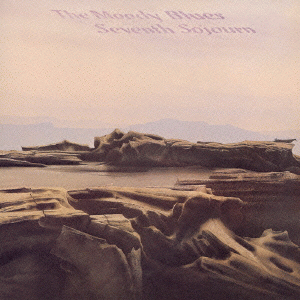
Seventh Sojourn is the eighth album by the Moody Blues, released in April 1972. The album reached No. 5 in the United Kingdom, and became the band's first American chart-topper, spending five weeks at No. 1 there to close out 1972.
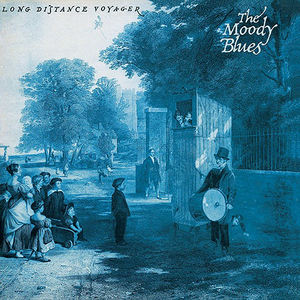
Long Distance Voyager is the tenth album by the Moody Blues, first released in May 1981 on the group's Threshold record label. It was the group's first album featuring keyboardist Patrick Moraz in place of co-founder Mike Pinder, who left after Octave in 1978.

Raymond Thomas was an English musician, singer and songwriter. He was best known as a founding member of the English progressive rock band the Moody Blues. His flute solo on the band's 1967 hit single "Nights in White Satin" is regarded as one of progressive rock's defining moments. In 2018, he was posthumously inducted into the Rock and Roll Hall of Fame as a member of the Moody Blues.

Graeme Charles Edge was an English musician, songwriter and poet, best known as the co-founder and drummer of the English band the Moody Blues. In addition to his work with the Moody Blues, Edge worked as the bandleader of his own outfit, the Graeme Edge Band. He contributed his talents to a variety of other projects throughout his career. In 2018, Edge was inducted into the Rock and Roll Hall of Fame as a member of the Moody Blues.

John Charles Lodge is an English musician, best known as bass guitarist, vocalist, and songwriter of the longstanding rock band the Moody Blues. He has also worked as a record producer and has collaborated with other musicians outside the band. In 2018, Lodge was inducted into the Rock and Roll Hall of Fame as a member of the Moody Blues.

This Is The Moody Blues is a two LP compilation album by the Moody Blues, released in late 1974 while the band was on a self-imposed sabbatical. Though all of the songs were previously released on albums, several of them are heard here in distinctly different mixes. Like the Moody Blues albums of the time – but unlike most compilation albums, including later Moody Blues compilations – the songs on this album segue seamlessly, without silence between tracks. On the original LP, this was true of the songs on each side; when the album was remastered for CD, each disc was also blended, so that "Legend of a Mind" segues into "In the Beginning", and "Watching and Waiting" segues into "I'm Just a Singer ".

"I'm Just a Singer (In a Rock and Roll Band)" is a 1973 hit single by the English progressive rock band the Moody Blues, written by the band's bassist, John Lodge. It was first released in 1972 as the final track on the album Seventh Sojourn and was later released as a single in 1973, with "For My Lady" as its B-side. It was the second single released from Seventh Sojourn, with the first being "Isn't Life Strange", which was also written by Lodge.
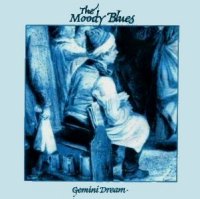
"Gemini Dream" is a 1981 single by the progressive rock band The Moody Blues. It reached number 12 on the US Hot 100, as well as number 1 on the Canada RPM Top 100 Singles chart. It is ranked as the 28th biggest Canadian hit of 1981.
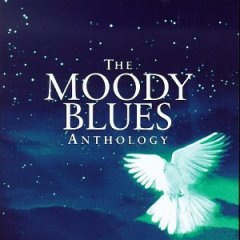
Anthology is a compilation album by the progressive rock band the Moody Blues. It was released in the US on 20 October 1998. It was not released in the UK until 2001 under the title The Collection with different artwork but with the same tracks as the US release.
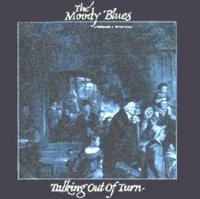
"Talking Out of Turn" is a 1981 single by the English progressive rock band the Moody Blues. It was the third and final single released from their 1981 album Long Distance Voyager.

Greatest Hits is a compilation album by the progressive rock band the Moody Blues, released in 1989. The band recorded new versions of "Isn't Life Strange" and "Question" with orchestration by the London Symphony Orchestra. The arrangements were overseen by Anne Dudley, who also produced the recordings with Justin Hayward and John Lodge. In 1990, only a year after its original release, the album was re-released as Legend of a Band: The Story of the Moody Blues with different artwork to coincide with the release of the home video documentary of the same name.
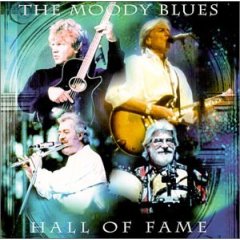
Hall of Fame is a live album by the progressive rock band the Moody Blues. It was recorded at a concert performed at the Royal Albert Hall, which included backing by a live orchestra. The album was released on 8 August 2000. It is the second Moody Blues live album to feature a live orchestra, with the first being A Night at Red Rocks with the Colorado Symphony Orchestra. This is the last live release to feature Ray Thomas.

"Blue World" is a 1983 single by the Moody Blues written by Justin Hayward. It was first released as single in August 1983, and was later released on the album The Present. "Blue World" was one of three singles from The Present, with the others being "Sitting at the Wheel" and "Running Water." "Blue World" also referenced two earlier Moody Blues songs, "The Voice" and "Fly Me High". "Blue World" was a moderate success for the Moody Blues in the U.S., charting at #32 on the Mainstream Rock chart, and at #62 on the Billboard Hot 100 chart. In the UK it reached #35, proving to be their first UK Top 40 hit in ten years, barring a reissue of Nights in White Satin, and remains their last there to date. The single's cover is a pastiche of the painting Daybreak by Maxfield Parrish.

Lovely to See You: Live is a two-disc live album by The Moody Blues. Released on 15 November 2005, Lovely to See You: Live was recorded at a performance at the Greek Theater in Los Angeles, California. The album is named after The Moody Blues song "Lovely to See You", from their 1969 album On the Threshold of a Dream. Unlike the Moody Blues' two previous live albums A Night at Red Rocks with the Colorado Symphony Orchestra and Hall of Fame, Lovely to See You: Live does not feature a live orchestra. It is also their first live album since Ray Thomas retired due to health issues.

Justin Hayward and Friends Sing the Moody Blues Classic Hits is an album by Justin Hayward of The Moody Blues with the Frankfurt Rock Orchestra and Michael Sadler of Saga and Shaun Williamson as guest-singers. It's an album of tracks taken from the Moody Blues discography, played with orchestral arrangements with lead vocal duties being taken in turn by Hayward, Sadler, and Williamson.

Days of Future Passed Live is a live album by The Moody Blues that consists of their live performance at the Sony Centre for the Performing Arts in Toronto in 2017. The album was released on 23 March 2018.





















